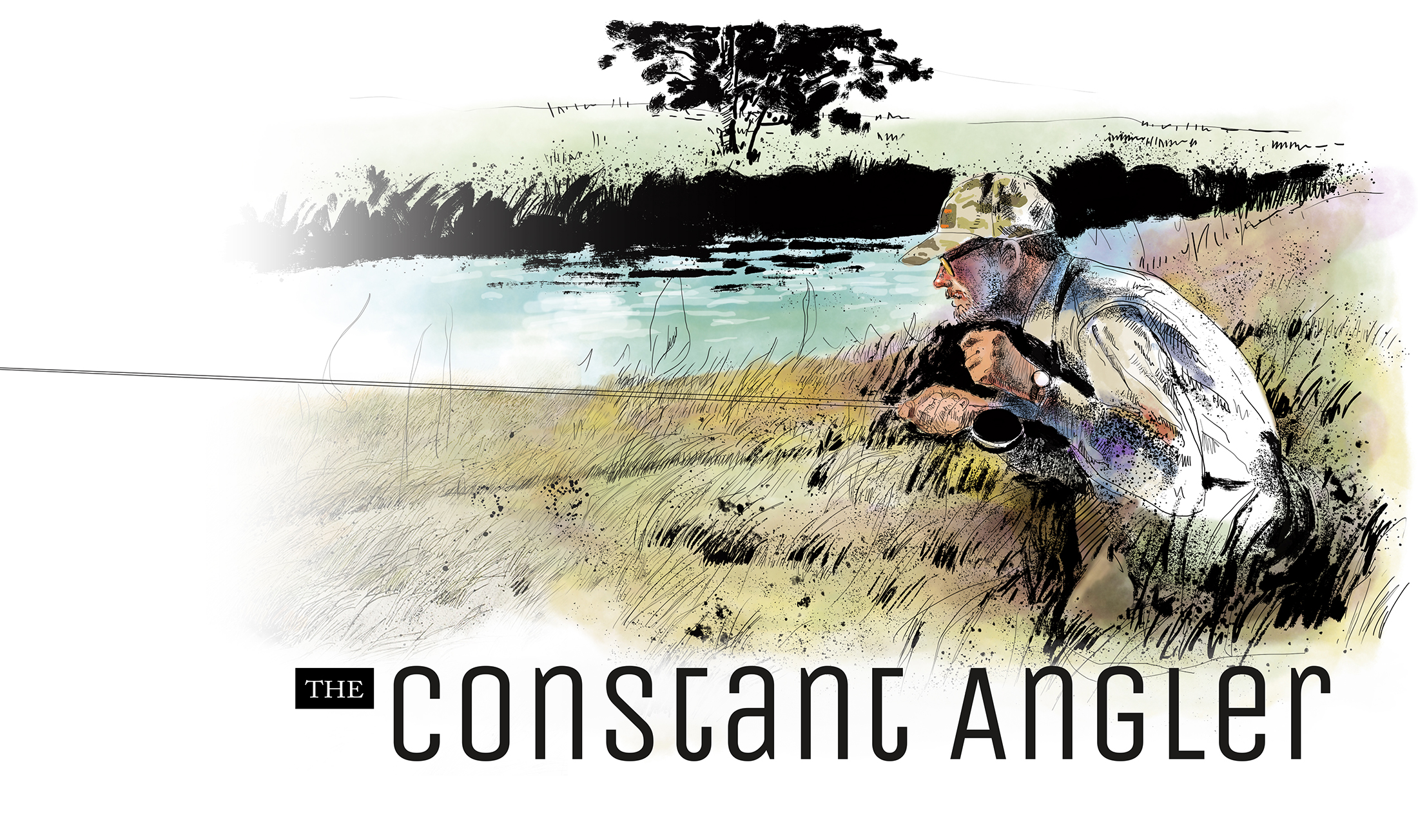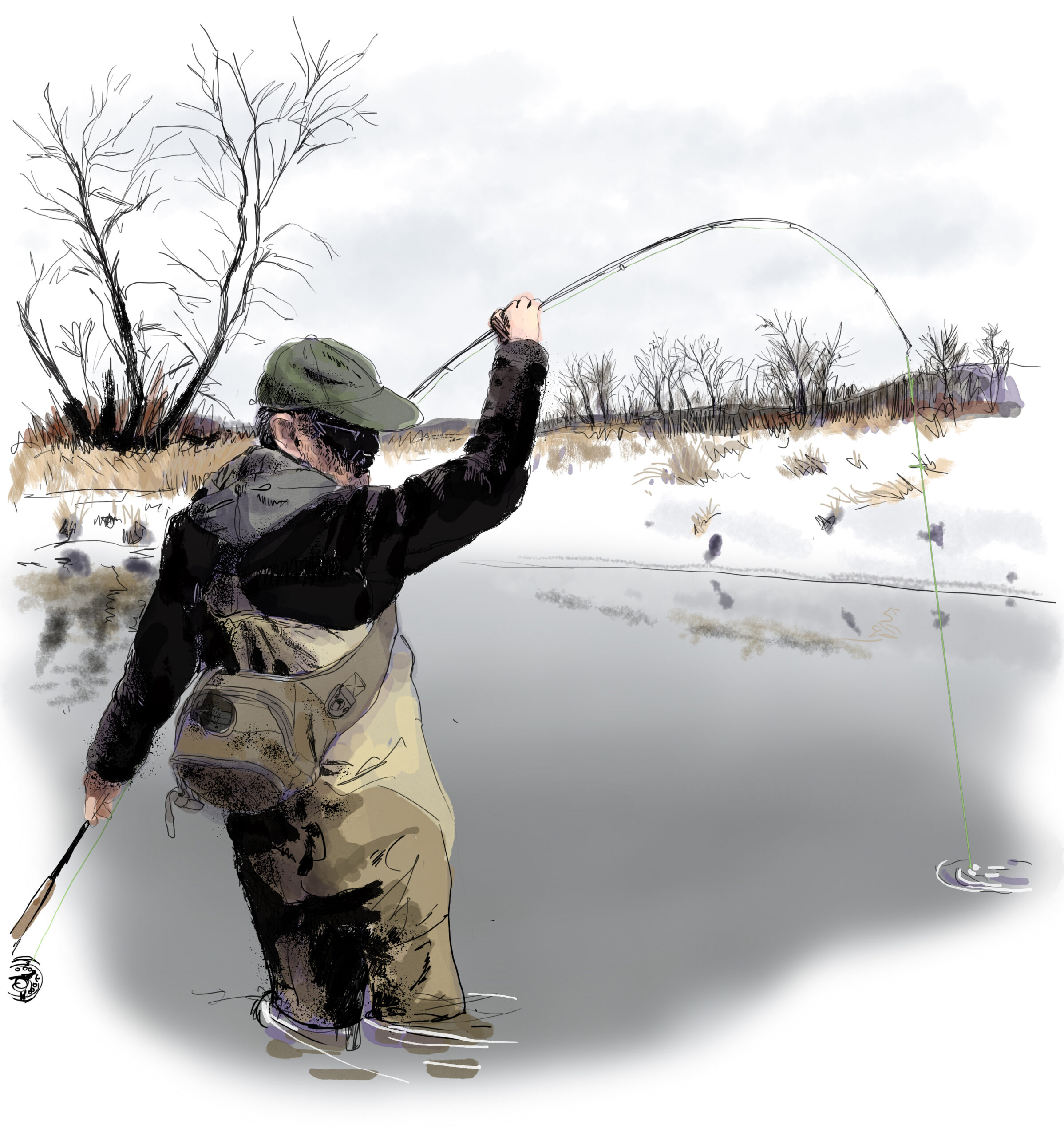Wintertime fishing is always a challenge, but I really do enjoy it. When there’s snow on the ground but the temps aren’t brutal you can have your favorite runs pretty much to yourself. Also, you can actually see the footprints of anyone who has been there before you and how long ago they were there. Recently I visited one of my usual spots and was happy to see that the only tracks in the snow were from Bret the day before.
It’s always my intent to fish on top and almost always with a blue-winged sparkle dun and that day just felt like a day that strategy might actually work. There were midges in the tall grass near the banks, but nothing on the water. Still, I’m here and I’ve had success on top in this area in the first week of February so it’s not totally unreasonable. I spend an appropriate amount of time giving the sparkle dun a try but the lack of any response or evidence of flies on the water soon prompts a change back to a small olive leech.
It’s a warmer day than it has been, but still, after a bit of swinging the leech the guides are fully iced over and I stop to chip the ice off. While I’m doing that with the leech still drifting in the water a 15-inch brown swims over and eats the leech. Now, my question is, can I claim that I caught him? Or was it an accident? I certainly can’t boast about my skill or well-thought-out strategy. But at this time of year, a nice fish makes the day a lot more hopeful.
I’m now fishing a lot more deliberately as I work my way around the next few bends. I work a number of fishy-looking places right along the shelf ice of the banks, but no one is buying my offering. The ice has built up in guides again so I pause to see which guides need clearing.
Again a fish takes, this time it’s a 16-inch.
I really do love these happy “accidents.” The surprise of success that I didn’t expect is the other side of the surprise I get when I observe, make a plan, choose a particular fly, make the perfect cast and the fish actually is there and strikes. But more than that, these accidents make me evaluate why that “accident” happened. That accident can move me off of my traditional held beliefs of how things are supposed to work. So much is written about techniques and skills that are needed to be a successful fly fisherman that sometimes I can feel foolish trying something that is obviously “wrong”. But these accidents, when evaluated, can lead to an optional technique that I can add when the traditional method just isn’t producing. I don’t think I’ll start icing up my guides on purpose, but I will put a full-on pause in the swing before I lift that leech and recast.


Leave a Reply